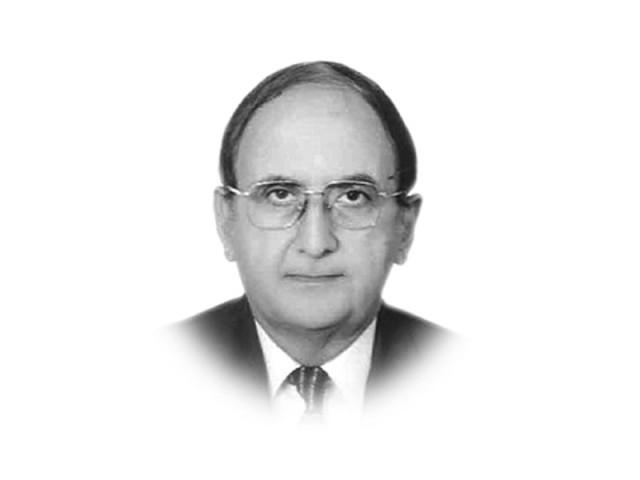Promoting democracy through agitation
Democracy can be destroyed in the name of democracy when rights are pursued without recognising corresponding duties.

Promoting democracy through agitation
Though the PTI started with the demand for recounting in the constituencies where its candidates lost, it now wants to pull down the Nawaz Sharif government at the federal level. Tahirul Qadri talks of the literal implementation of the articles of the Constitution but he also aims at dislodging the Nawaz Sharif government. Smaller opposition parties working with these two parties share this objective. The greatest worry is when the political parties engage in a political game with a zero-sum perspective and each claims that nothing is acceptable short of total victory, all political parties may lose.
The ruling PML-N has alienated people at a faster pace than was the case during its earlier two terms in office (1990-1993 and 1997-1999). It is lonely in the current political spectrum and it has picked up some confrontation with all major entities, including the military. The PPP is also expected to drift away from it because the PML-N government has opened court proceedings against some PPP leaders. How many fronts does the PML-N want to fight on? Its governance in the first year in office in the current term is marked by highly personalised, insular and parochial rule by the Sharif brothers, their relatives and close associates that paid more attention to high-flying rhetoric and initiated high-profile and media-oriented projects while neglecting the measures that could address the power shortages, price hike and poor law and order. The well-publicised initiation of 26 new electricity generation projects could not change the bitter reality that Pakistan experienced the worst electricity shortage in history this Ramazan.
Furthermore, the brute display of state power in Lahore on June 17 at the headquarters of Dr Qadri’s religious movement and the purely administrative response when Qadri returned to Pakistan on June 23 showed that the PML-N government preferred the display of state power over political measures.
If the PML-N has demonstrated poor governance and flawed political management, the path of street agitation adopted by Imran Khan and Dr Qadri does not offer a better alternative.
If the objective of the opposition is electoral reforms or full implementation of the Constitution, street agitation does not offer a better course of action. The proposed methods will lead to direct confrontation between the government and the opposition. Pakistan’s experience suggests that confrontational politics does not necessarily improve the quality of democracy.
All political leaders and activists need to reflect on a simple question. If all political leaders and political parties believe in democracy and want this to become strong in Pakistan, why does this not happen? If all want democracy, why does Pakistan have a strong deficit of democracy?
Democracy cannot be consolidated only by verbal commitments. It depends on what the political and societal leaders actually do in the political domain. Democracy is also an attitude and a way of life. If the leaders and their followers are keen only for enjoying their rights in their own way in a democratic system without giving equal importance to their duties, democracy cannot consolidate. Democracy also expects that the political leaders cultivate self-restraint as a part of their disposition.
Political leaders create political institutions and processes. Once these are created, the political leaders must function through them and address their problem within the limits set out by these institutions and processes. These institutions grow over time if mid-course corrections are made on the basis of practical experience.
Street agitation shows that either the leadership has no faith in the democratic institutions or processes or they want to impose their choices by paralysing these institutions by displaying street power. The experience of the Arab Spring shows that street agitation can dislodge a ‘despised’ government, but it does not necessarily guarantee the rise of democracy.
In Pakistan, political leaders do not imbibe democratic norms of mutual respect and restraint. Look at television political talk shows. Party activists use foul language and engage in personal recrimination. Some of them are known for their irrelevant conversation, shouting and not letting others speak. What these leaders are teaching to the younger generation is that you do not listen to others, be defiant, do not hesitate to insult your political adversaries and that there is nothing wrong in being irrelevant, but do not let others talk.
Democracy is a delicate system of governance and societal management. It is also a culture of rights, duties and restraint. It can be destroyed in the name of democracy when rights are pursued without recognising corresponding duties and its institutions and processes are bypassed.
Pakistani politicians should recognise the limits of settling political issues on the streets. The invocation of Articles 62 and 63 of the Constitution for mudslinging against the top leaders is another ruinous strategy that minimises the chances of political accommodation. Such a free-for-all politics and total confrontation is likely to hurt all the key political players. This can shift the political initiative to the military that is already disappointed, if not hurt, by the priorities of the political leaders at a time when it is engaged in a war to save Pakistan from extremism and terrorism.
Published in The Express Tribune, July 14th, 2014.
Like Opinion & Editorial on Facebook, follow @ETOpEd on Twitter to receive all updates on all our daily pieces.















COMMENTS
Comments are moderated and generally will be posted if they are on-topic and not abusive.
For more information, please see our Comments FAQ